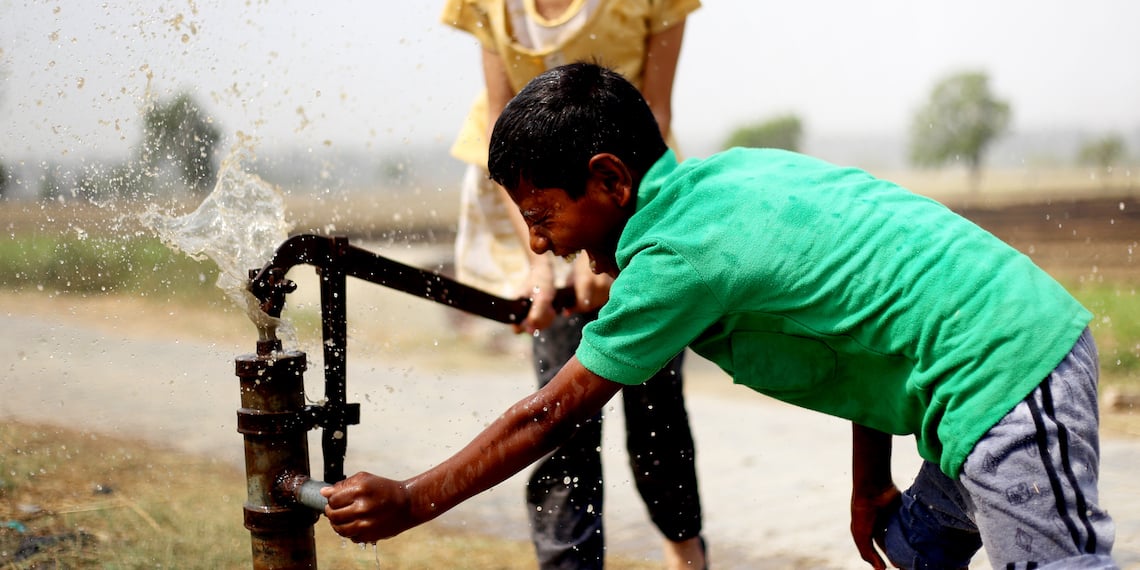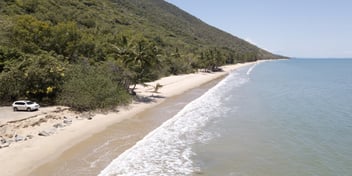Listening locally to tackle global challenges

As the COVID-19 pandemic passes, Ozwater’23 is seeing Australia’s premier water exhibition and conference reclaim its place as a worldwide draw.
With this international perspective in mind, four experts with experience from around the world gathered for the Ozwater’23 Global Perspectives Forum, a wide-ranging discussion of the common challenges confronting water professionals around the world.
Seeking to share their own collaborative experiences, the panelists considered questions of community relationships, technology and innovation, and the overarching demands of responding to climate change.
The panel heard from Gillian Blythe, CEO of Water New Zealand, discussed New Zealand’s current Three Waters Reform, which seeks to bring water services out of the hands of 67 councils and into 10 entities by July 2026.
Implementing such a reform requires significant investment – not just in monetary terms, but also in regards to liaising with the local communities who will be affected.
“There will be a regional representation group which will be made up of representatives from local government and mana whenua – the Maori of the region – and they will be engaged in terms of statements of expectations, strategies and those semantics,” Blythe said.
“Each of these entities will be required to give effect to the principles of Te Tiriti o Waitangi, which is the Treaty of Waitangi. They will also be required to give effect to Te Mana o Te Whai.
“Now, Te Mana o Te Whai is a concept in the National Policy Statement on Fresh Water Management that has been introduced into the water legislative environment, which fundamentally gives priorities of water. It says we need to make sure that the water is healthy. And then we can think about drinking water needs, and then we can think about other social, economic and cultural matters.”
Worldwide access to water
These intensely place-based concerns resonated with Rosie Wheen, Chief Executive of WaterAid Australia, be it in the organisation’s work here in Australia or abroad with remote communities, in places such as Papua New Guinea or Timor Leste.
“Our vision is a world where everyone has access to safe water, decent toilets and good hygiene – so success for us means we won't exist,” she said.
“When I think about collaboration, and what that means for Water Aid, we are at our best when we find collaboration with partners that add value that work in a different way.”
One Water Aid project Wheen gave as an example is working to bring not just water, sanitation and hygiene to people in the rural and mountainous parts of Timor Leste, but also to create flood warning systems that can reach such populations by text message.
“The way that Water Aid is making that happen in Timor Leste is absolutely through collaboration,” she said.
“It's working with four ministries, five national directorates, other not-for-profit partners … a technology company … as well as rights holders groups. We're working together to ensure that we're thinking about water security and water, sanitation and hygiene for these communities.
“And the innovation is taking the deep traditional practices called Tara Bandu – of the Timorese culture that's been there for hundreds of years – bringing those messages into water security of water management, but also [bring in] the innovation and technology.”
Surveillance for good
Technological possibility was also top-of-mind for Greta Zornes, Practice Leader for Water Reuse at CDM Smith.
Zornes had seen in real-time the opportunities afforded by wastewater surveillance technology throughout the COVID-19 pandemic, and the collaborative possibilities they represent.
“In March of 2020, we had fewer than 10 countries in the world that were doing routine wastewater surveillance. Now, it's more than 72 countries – more than 4000 sites around the world,” she said.
“Utilities came together, along with academics, consultants and volunteers. We were doing wastewater surveillance, from Jordan, to Egypt to the US – all kinds of locations and we're looking at all types of different applications.”
This has allowed a true integration between the water industry and public health.
“We're always thinking about public health as well as the treatment side, the traditional engineering side. But I think with wastewater surveillance, we truly brought it all together,” Zornes said.
“I think that's just the beginning. I see wastewater surveillance as an example of how we can collaborate, both globally and nationally, to solve some of the big problems facing our world today.”
Towards zero
For Ryan Yuen, a Deputy Director at Singapore’s PUB, the country’s national water agency, the important collaboration was experienced at a local scale. He described PUB’s new Sustainability Strategy.
This focuses on four key areas: enhancing water security, increasing flood resilience, strengthening coastal protection and reducing the carbon footprint.
“The entire Singapore public service – that includes us – we actually aim to peak our carbon emissions by around 2025, and to achieve net zero emissions by 2045,” he said.
“For us to do this, we have articulated our strategy around three Rs, which is replacing carbon-emitting energy sources, reducing carbon emissions and removing carbon to capture and utilisation.”
Collaboration is important for a utility like PUB, Yuen said, because no single organisation has all of the solutions – which is what makes events like Ozwater so useful.
“We see that there's a lot of good stuff that other utilities are doing,” he said. “And the question is: how do you create awareness and build a partnership?”


